Kishmish - properties and calorie content of berries
Fruit grapes people use it not only as an excellent dessert, but also as a cure for many diseases. Among the sweet varieties of berries, the variety of raisins, also known as sabza, is distinguished. The value of sweet fruits in its composition, giving health, youth. Before using the product, you need to know not only about the beneficial properties, but also to whom it is contraindicated.
Translated from Persian kishmish means dried grapes. This type of grape crop is used to make raisins. It was known in ancient times, as traces of raisins were found during excavations of primitive man's settlements. At all times, raisins were used to prepare various dishes; it is an important component of first-class wines and juices. The best conditions for growing sweet grapes are in the countries of the Middle East and Central Asia. There are several varieties of raisins, differing in color, size, and taste of berries.
Content:
- Description of the variety
- Composition, useful properties of berries
- Calories, proteins, fats, carbohydrates
- Harm and contraindications
- The use of raisins in cooking, medicine
- Rules for the selection and storage of grapes
Description of the variety
Sabza, or raisins, is one of the best grape varieties with high yields. One bunch contains a large number of miniature grapes with dense skin. During transportation, the berries are well preserved, do not crumple. Therefore, they can be seen on the shelves of shops, markets in any corner of the world.
Among the popular varieties of raisins are distinguished:
- The oval white grape has no seeds, so a delicious amber raisin is obtained from it.
- In white round raisins, small seeds are found when eaten. The variety is valuable for the fleshiness, sweetness of round small fruits.
- A black grape variety is juiced. It has a pronounced aroma, tart-sweet taste.
- Pink raisins with oval berries are unevenly colored.
- Moldovan grapes with light purple fruits are distinguished by the harmony of taste.
All varieties of raisins are used for food both fresh and dried as raisins.
Composition, useful properties of berries
The rich composition of grape fruits is invaluable to a person, prolonging life and preserving youth:
- Well-ripened raisins grapes will make up for the lack of vitamin C and A in the human body.
- A sufficient amount of folic acid in it has a positive effect on women during pregnancy and breastfeeding.
- Those who often consume grapes have a strong immune system, they are always in a good mood.
- Sweet raisins perfectly tones, relieves fatigue, stress.
- Among the minerals in the berries, the presence of magnesium, phosphorus, potassium, calcium is determined, which is important for the functioning of the nervous, vascular system, the state of the digestive tract, and the human skeleton.
- During a flu epidemic, colds should be included in the diet of grapes. It effectively fights cough in chronic forms of bronchitis, asthma, tuberculosis.
- Grapes have a positive effect on the work of the digestive system.Stimulating the work of the gallbladder, controlling the production of bile, the fruits of raisins relieve heartburn, nausea after eating.
- Mono- and disaccharides in berries are easily absorbed, normalizing metabolic processes. The grape diet is recommended for recovering a person after a serious illness, operations, in old age.
- Pectin in berries helps to remove toxins in case of poisoning, and enzymes normalize intestinal function.
- The use of berries is useful for diseases of the nervous system, kidney and liver dysfunction.
- Antioxidants in raisins delay the aging process of cells. It is not for nothing that the life expectancy of those who eat grapes is increasing.
- Dark-colored kishmish, fresh and dried, is good for the heart and blood vessels.
Calories, proteins, fats, carbohydrates
The sweet appearance of the grape crop quickly saturates a person, since the energy value of the berries is 68 kilocalories per 100 grams of product. Most of all in the raisins carbohydrates - 16.8 g. The rest falls on proteins (0.6 g) and fats (0.2 g). Considering the nutritional value of berries, it is necessary to exclude other high-calorie foods from the menu.
Grapes provide a large supply of energy necessary to raise vitality, charge for the whole day.
No wonder there are grape diets that can reduce body weight. At the same time, the patient does not feel hungry. But you need to sit down on such a diet after consulting a specialist, otherwise weight loss will increase mass together.
Harm and contraindications
Among the large number of benefits that grapes give, there are a number of contraindications:
- The sweet product is harmful to diabetics. After consuming it, even in small amounts, the blood sugar level will rise sharply.
- The raisins berries contain organic acids - malic, citric, tartaric. They irritate the walls of the stomach in patients with peptic ulcer disease, high acidity. Taking the fruit will negatively affect the state of the pancreas in pancreatitis, the gallbladder - cholecystitis.
- Even for an absolutely healthy person, eating grapes all day is harmful. After a while, nausea, flatulence, diarrhea will develop. And the joint use of raisins with fatty meat, milk, alcoholic beverages, beer, mineral, carbonated water will lead to an increase in fermentation processes, intestinal upset. It cannot be combined with other fruits and vegetables.
- Grape juice has a negative effect on the condition of the tooth enamel. Before including the fruit in the diet, it is necessary to treat tooth decay. And the high sensitivity of the teeth will not let you enjoy the taste of grapes to the fullest.
You can avoid harm from raisins if you eat no more than twenty-five grapes a day.
The use of raisins in cooking, medicine
There are many dishes known that, without the addition of dried grapes, would lose their charm. First of all, these are all kinds of baked goods. And recipes for Easter cannot do without this delicacy. The taste of raisins goes well with chocolate, citrus fruits, baked apples. In desserts, sabza is used along with ginger.
Dried kishmish is added to the first and second courses. It gives a unique taste to cereals, meat and fish delicacies. It is used in the preparation of sauces. Compote and homemade wine are prepared. Raisins are added to improve the properties of herbal infusions and decoctions.
In folk medicine, a decoction of dried berries is used as an expectorant effect.
Dark-colored kishmish in homemade wine and juice is useful for reducing the risk of myocardial infarction. It fights the formation of blood clots in blood vessels. A special benefit of grape drinks is the presence of phenolic compounds in them, which protect the body from bad cholesterol. The popularity of dried raisins grapes in its high taste and useful properties.
Rules for the selection and storage of grapes
During the summer and autumn, the shelves of retail chains are overwhelmed grapes... Among the products, rich bunches, strewn with small berries, stand out. This is raisins. Its dense berries look fresh for a long time. When buying, pay attention to the integrity of the fruit. They should be free of any spots, oval or round berries are fresh if they are not rumpled. A shriveled skin is a sign that the grapes have been lying for a long time, already starting to dry out.
After purchasing the grapes, rinse thoroughly under warm running water, rinse off those chemicals with which the surface of the skin is treated. Processing is carried out so that the grapes have a good presentation.
For long-term storage, it is better to dry the grapes, because the raisins are ideal for this.
Berries are laid out for drying in a well-ventilated area. You can use an oven or a special dryer to speed up the process. Store the product in cotton or paper bags. Glass jars closed with vacuum lids are also suitable. Homemade raisins are used within a year after preparation. You can fully experience the benefits of the fruit if you choose and store it correctly.
More information can be found in the video:



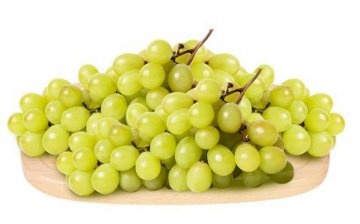
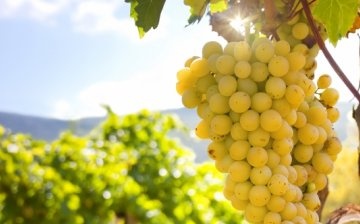
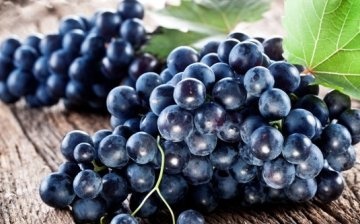
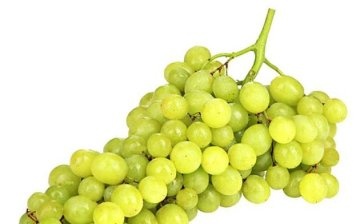

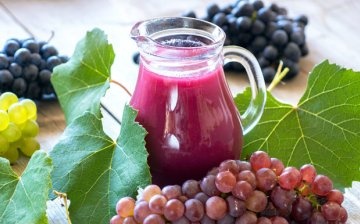
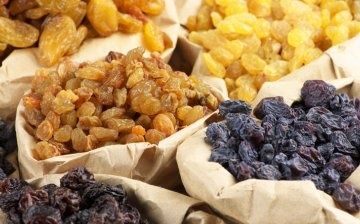







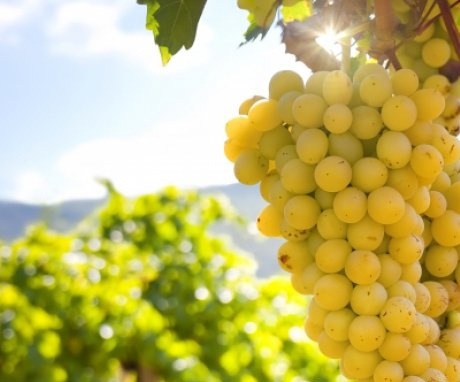
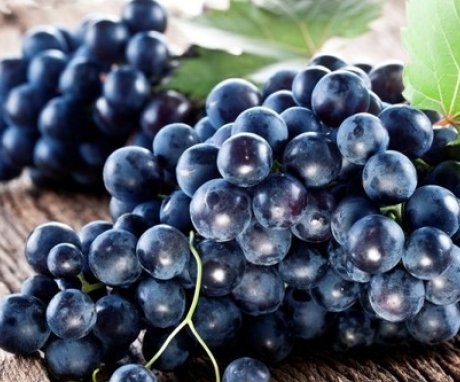
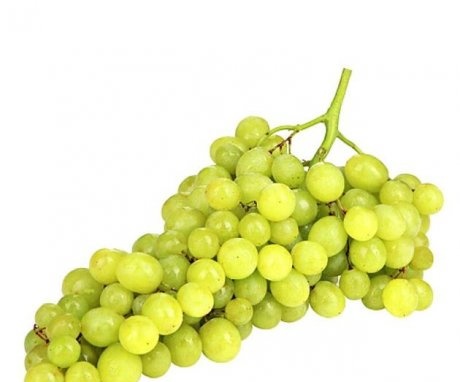
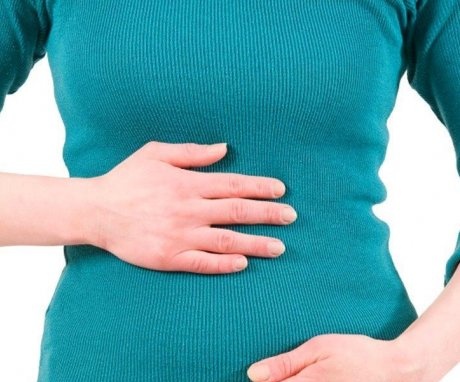
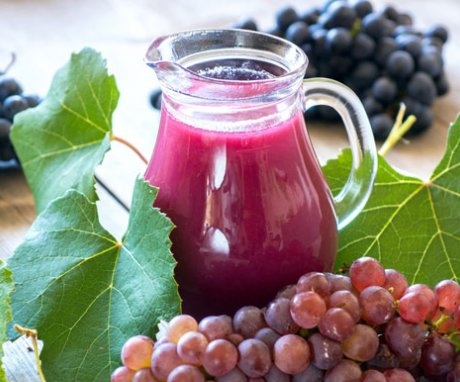
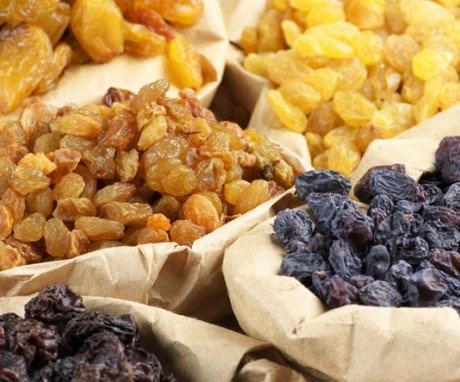
Kishmish is a very tasty and healthy grape, but I like to use it more as an ingredient in winemaking. It seems to me that it is there that it fully reveals all its qualities.
Kishmish is my favorite grape because it is sweet and seedless. I really like to cook salads with it - it turns out delicious and juicy dishes. It is rich in vitamins, but because of its sweetness (and other grape varieties) it is not recommended for diabetics.
We have a green raisin grape growing on our site, which itself is very tasty, because there are no seeds in the berries. We add raisins to baked goods and Christmas kutya. We love to eat grapes with tea.